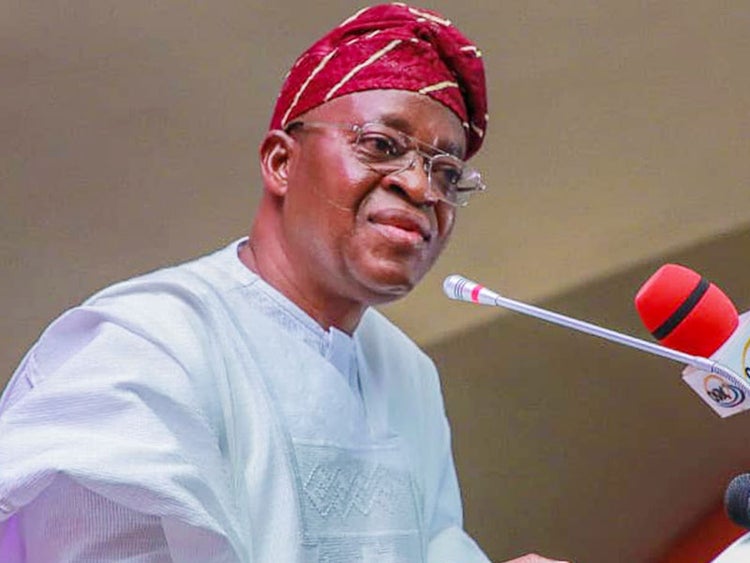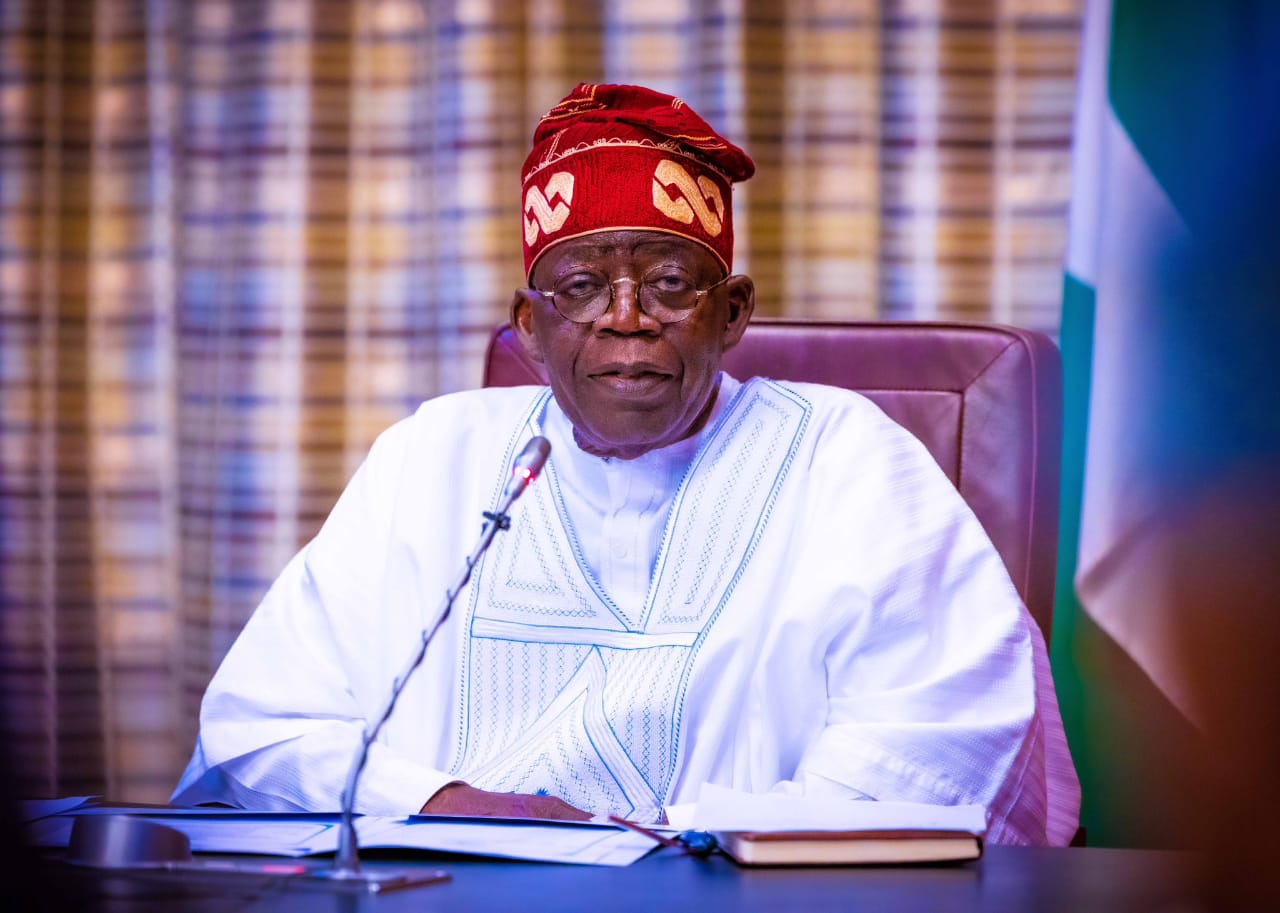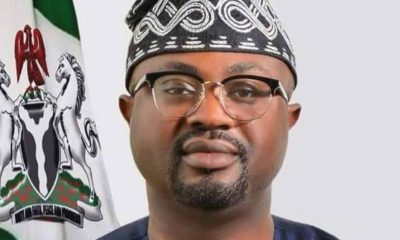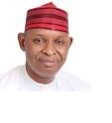COVER
Again, Labour Kicks as FG Proposes N54,000 Minimum Wage

By David Torough, Abuja
Meeting on the ongoing negotiations on new minimum wage has been adjourned till today after the organised labour rejected the new N54,000 minimum wage proposal by the Federal Government, a highly reliable source who attended the meeting confided.
Tuesday’s meeting came as a result of the walkout staged by members of the organised labour following the proposal of N48,000 as minimum wage by the Federal Government during last week’s meeting.
During that meeting, the OPS had also proposed N54,000 while labour insisted on its N615,000 living wage demand.
A source who attended the follow-up meeting on Tuesday learnt that the Federal Government upped its offer from N48,000 to N54,000.
“Well, during the meeting, the government increased its offer from N48,000 to N54,000. However, labour rejected that offer and the meeting has been adjourned till Wednesday,” a source who pleaded disclosed.
When asked if the government’s side was showing any sign of seriousness, the labour leader said, “No seriousness at all. Even state governors did not show up. Those who represented them, like Bauchi and Niger states, did not have the mandate to speak on their behalf.
“As regards the private sector, we did not get to them before the meeting was adjourned but we hope they also increase their initial offer.”
Organised labour on Monday reiterated its May 31, 2024 deadline for the implementation of the new minimum wage.
The National President of the Nigeria Labour Congress, Joe Ajaero, insisted on N615,000 minimum wage, arguing that the amount was arrived at after an analysis of the current economic situation and the needs of an average Nigerian family of six.
He blamed the government and the OPS for the breakdown in negotiation, saying, “Despite earnest efforts to reach an equitable agreement, the less than reasonable action of the Government and the Organised Private Sector has led to a breakdown in negotiations.”
In a statement released at the end of the jointly held NEC meeting by the NLC and TUC which was signed by Joe Ajaero, NLC president and Festus Osifo, TUC president, the unions said they acknowledge the ongoing negotiations between the NLC/TUC, the Organised Private Sector and the Federal Government regarding the new national minimum wage.
While appreciating what they described as the efforts made thus far, the NLC and TUC emphasized the urgency of reaching a fair and equitable agreement that reflects the true value of Nigerian workers’ contributions to the nation’s development and the current crisis of survival facing Nigerians as a result of government’s policies.
They also affirmed commitment to ensuring that the interests and welfare of workers are adequately protected in the negotiation process.
President Bola Tinubu through Vice President Kashim Shettima, on January 30, 2024, inaugurated the 37-member Tripartite Committee on Minimum Wage to come up with a new minimum wage ahead of the expiration of the current N30,000 wage on April 18.
With its membership cutting across federal and state governments, the private sector and organised labour, the panel is to recommend a new national minimum wage for the country.
During the inauguration of the panel, Shettima urged the members to “speedily” arrive at a resolution and submit their reports early.
“This timely submission is crucial to ensure the emergence of a new minimum wage,” Shettima said.
In furtherance of its assignment, a zonal public hearing was held simultaneously on March 7 in Lagos, Kano, Enugu, Akwa Ibom, Adamawa, and Abuja.
The NLC and the TUC in different states proposed various figures as a living wage, referencing the current economic crunch and the high costs of living.
In their different proposals on the minimum wage, the NLC members in the South-West states demanded N794,000 as the TUC suggested N447,000.
Business News
Blue Economy Targets Top Spot in PEBEC – Oyetola

From Anthony Nwachukwu, Lagos
Mindful of the sector’s critical role in economic diversification and sustainable development, the Ministry of Marine and Blue Economy aims to place Nigeria tops in the Presidential Enabling Business Environment Council (PEBEC) by achieving ease of doing business and fostering a conducive environment for trade and investment.
To this end, the Minister, Adegboyega Oyetola, said the ministry plans to elevate Nigeria’s maritime sector to global standards and has prioritised the implementation of the national single window and port community system to automate port processes, in order to enhance operational efficiency and attract investments.
Oyetola, who spoke at the BusinessDay Maritime Conference in Lagos Thursday, disclosed that the ministry has already reported significant progress in revenue generation, driven by innovative strategies to block revenue leakages and explore new sources within the marine and blue economy sector.
Others include ongoing efforts to upgrade infrastructure, such as the development of inland dry ports and modernisation projects at key ports across the country, while public-private partnerships (PPPs) in advancing port modernisation, dredging activities and deploying cutting-edge maritime technologies remain important.
He further announced plans for the development of additional deep-sea ports on a PPP basis to further bolster Nigeria’s maritime capabilities.
Acknowledging the significant contributions of participants in shaping the discourse in Nigeria’s marine and blue economy, Oyetola expressed hope that insights from the conference would drive positive transformations and propel Nigeria towards greater economic prosperity through the harnessing of its vast maritime resources.
He restated his commitment to developing a dynamic national policy framework for the sector by the end of the year, while urging all stakeholders to continue working together towards realising the sector’s full potential, ensuring sustainable growth and inclusive development across coastal communities.
COVER
Tinubu Receives Bill Proposing Return to Regional Gov’t

By David Torough, Abuja
President Bola Tinubu is expected to receive a draft bill seeking a return to a regional system of government for Nigeria today.
The proposed legislation authored by a chieftain of the Yoruba socio-cultural association, Afenifere, Akin Fapohunda, and titled, “A Bill for an Act to substitute the annexure to Decree 24 of 1999 with New Governance Model for the Federal Republic of Nigeria’, seeks among others, new extant laws to be cited as “The Constitution of the Federal Republic of Nigeria New Governance Model for Nigeria Act 2024.
”Last week that the said bill was disowned by the House of Representatives whose spokesman, Akin Rotimi, and the Chairman, Committee on Rules and Business said it had not been listed for deliberation in the ongoing moves to review the 1999 Constitution (as amended).
However, Fapohunda disclosed on Thursday that the bill would be transmitted to the President today.
Meanwhile, Fapohunda who also represents the Coalition of Indigenous Ethnic Nationalities said that the organisation is proposing the division of the country into eight geo-political regions with approximate interim boundaries.
The proposed regions, according to Fapohunda, include, the southern region to be made up of Akwa-Ibom, Bayelsa, and Cross Rivers States and “Optional inclusions of the Annang, Effik, Ekoi, Ibibio, Oro Ohaji/Egbema in Southern Imo, the Adonia, Efemia, Ijaw, Ogoni, Bini, Ishan, Isoko, Urhobo and the Ijaw-speaking people in Northern Ondo State with land contiguity.”
He continued, “The South Eastern region consists of Abia, Anambra, Ebonyi, Enugu, and Imo States. The Western region comprises Lagos, Ogun, Ondo, Osun, Oyo, and Ekiti States, incorporating the Yoruba-speaking people in Kogi and the Igbomina people in Kwara State. Additional options would be for the Itsekiri people of Delta State and Akoko-Edo people of Edo State to make their respective choices.”
Others include the Mid-Western Region “Made up of Edo and Delta States, possibly incorporating the Anioma people and the Eastern Middle Belt Region comprising Northern Cross River, Southern Kaduna, Southern Borno, Adamawa, Benue, Kogi, Plateau, Nasarawa and Taraba States.”
The Western Middle Belt Region comprises Southern Kebbi, parts of Kwara and Niger States while the North Eastern Region will be made up of parts of Borno, Gombe, Bauchi, Jigawa, and Yobe States.
The North Western Region, according to the Afenifere chieftain, comprises Kaduna, parts of Kebbi, Kano, Katsina, Sokoto and Zamfara States.
Fapohunda said the coalition envisaged a two-tier government, federal and regions, adding that the latter would be at liberty to manage her affairs, “Including the creation of sub-entities, based on the stipulations that are agreed upon and embedded in their respective constitutions.”
In its proposed governance stipulations, CIEN stated that “In the quest for re-configuration and downsizing, an option to consider might be to retain the present boundaries of the 36 States, as would have been adjusted, but to creatively downgrade the paraphernalia of political administration as follows:
“To introduce a new regional government framework with executive and legislative functions and bodies with the headship title of Premier.
“In the new dispensation, the present States (for example the six in the Western region) would be converted to provinces. Governance at this level shall be by Provincial Councils that integrate executive and legislative functions, with Chairman and Support Specialist Administrative Officers. The regions shall be at liberty to create provinces, subject to viability and self-sustainability.
“The present Local Government Areas are to be transformed into divisions, with divisional managers and specialist administrative officers; to operate as socio-economic development institutions. The new provinces shall also be at liberty to create divisions, subject to viability and self-sustainability.”
The coalition also proposed a new constitution to embody novelties including freedom of the regions to “Create, merge and or re-configure their sub-political units and may adopt provinces, divisions or districts as may suit their circumstances without interference from any other authority.
“Regions and sub-regional entities are to be reconfigured such as would reduce the cost of public and civil service administration to less than 20 to 30 per cent of generated revenue.
“In drafting their Constitutions, the peoples of the respective regional territories will take a cue and also dismantle any arrangement or configuration that will favour the politicians and the political class; with a focus on freeing resources for true development.
In all, the coalition proposes that the Federal Government “Shall comprise not more than nine Ministries and Ministers,” adding that “The very big United States has just 15 Cabinet Ministers, while Nigeria is not even up to just a State of Texas or New York.”
The group is also advocating a return to the parliamentary mode system of government “Built-in statutory rotation of headship among the regions.”
Bill seeking six-year single term, “anti-democratic” – NANS
Relatedly, the National Association of Nigerian Students yesterday rejected the bill seeking a single term of six years for the President and state governors, describing it as “anti-democratic” and an attempt to stifle citizens’ choices.
It will be recalled that 35 members of the House of Representatives, under the auspices of Reformed-minded Legislators, had last week proposed a bill seeking a single term of six years for the President and state governors.
The lawmakers are equally seeking for rotation of the presidency among the six geopolitical zones of the country, arguing that the proposition if implemented would lead to a reduction in the cost of governance.
However, NANS while reacting to the bill, called on Nigerians, pro-democracy groups, organised labour and trade unions to mobilise against the bill.
Speaking at a press conference in Abeokuta, Ogun State on Thursday, the National Clerk of the Senate of NANS, Yekini Adewale described the bill as “a smokescreen” to divert the attention of Nigerians from the current economic pains and agonies that Nigerians are facing.
The apex student body threatened to mobilise students across the country in a protest against the bill.
Adewale said that if the bill is passed into law, it would erode accountability, probity, transparency and responsibility on the part of political leaders.
‘Yes, democracy thrives on the pedestal of a synergy between the three arms of the government, but when a key arm such as the legislature, proposes bills and peradventure, passes laws that stifle people’s choices or throw spanners at the wheel of the tenets of democracy, then, it is disheartening and must not be allowed.
‘NANS as a non-governmental organisation and the only pressure group that has been agitating for the continued survival and sustainability of our hard-earned democracy from being truncated does not only condemn the proposed bills but calls on Nigerians to move against such step aimed at achieving a selfish agenda by some unscrupulous politicians.
‘If the proposed bills are allowed to see the light of day, then, our democracy is in total jeopardy.
‘Any president or governor who realises that he cannot seek a second term in office, may rather busy himself feathering his own nose instead of delivering good governance to the electorate.
“Expunging the second term from our constitution is synonymous with extinguishing the only power the electorate has to vote out any non-performing president or governor.
‘As a student body in the country, we shall mobilise our members massively against these bills seeking to efface accountability, probity, transparency and responsibility from the elected executives and lawmakers.
‘To further demonstrate our rejection of these anti-democracy, anti-people and anti-progress bills, a day will be set aside for Nigerian students to embark on a mass march against the National Assembly,” Adewale said.
COVER
LG Autonomy: S/Court Reserves Judgement on FG’s Suit against 36 Govs

By Lubem Myeorny, Abuja
The Supreme Court yesterday reserved judgment in a suit filed by the Federal Government against the governors of the 36 states of the federation over alleged misconduct in the administration of Local Government Areas.
Justice Garba Lawal, who led a seven-member panel of Justices of the apex court reserved judgment after all parties, adopted their various written addresses earlier.
Lawal said the date for judgment will be communicated later.
The Attorney-General of the Federation (AGF) and Minister of Justice, Lateef Fagbemi, SAN, had on behalf of the federal government sued the 36 states over the manner the governors are running the LGs funds.
In the suit marked SC/CV/343/2024, the AGF prayed the apex court for an order prohibiting state governors from unilateral, arbitrary and unlawful dissolution of democratically elected local government executives.
Fagbemi in the originating summons is praying the Supreme Court for an order permitting the funds standing in the credits of local governments to be directly channelled to them from the Federation Account in line with the provisions of the Constitution as against the alleged unlawful joint accounts created by governors.
He also sought an order of the apex court stopping governors from constituting caretaker committees to run the affairs of local governments as against the constitutionally recognised and guaranteed democratic system.
He applied for an order of injunction restraining the governors, their agents, and privies from receiving, spending, or tampering with funds released from the federation account for the benefit of local governments when no democratically elected local government system is put in place.
Fagbemi asked the apex court to invoke sections 1, 4, 5, 7, and 14 of the constitution to declare that the state governors and State Houses of Assembly are under obligation to ensure a democratic system at the third tier of government.
The suit also wants the apex court to invoke the same sections to hold that the governors cannot lawfully dissolve democratically elected local government councils.
In a 13-paragraph affidavit in support of the originating summons deposed to by Kelechi Ohaeri from the AGF’s office, Fagbemi averred that he filed the suit under the original jurisdiction of the Supreme Court on behalf of the federal government.
The deponent asserted that the local government system recognised by the constitution is a democratically elected local government council and that the amount due to local government councils from the federation account is to be paid to the local government system recognised by the constitution.
That the governors represent the component states of the Federation with Executive Governors who have also sworn to uphold the Constitution and to, at all times, give effect to the Constitution, and that the Constitution, being the supreme law, has binding force all over the Federation of Nigeria.
Other prayers include: that the constitution of Nigeria recognises federal, state, and local governments as three tiers of government, and that the three recognised tiers of government draw funds for their operation and functioning from the Federation Account created by the Constitution.
By the provisions of the Constitution, there must be a democratically elected local government system, and the Constitution has not made provisions for any other systems of governance at the local government level other than a democratically elected local government system.
In the face of the clear provisions of the Constitution, the governors have failed and refused to put in place a democratically elected local government system, even where no state of emergency has been declared to warrant the suspension of democratic institutions in the state.
The failure of the governors to put a democratically elected local government system in place is a deliberate subversion of the 1999 Constitution, which they and the President have sworn to uphold.
Fagbemi also said that all efforts to make the governors comply with the dictates of the 1999 Constitution in terms of putting in place a democratically elected local government system have not yielded any result.
The AGF said that the federal government continued to disburse funds from the Federation Account to the governors for non-existing democratically elected local governments to undermine the sanctity of the 1999 Constitution.
He averred that in the face of the violations of the 1999 Constitution, the federal government is not obligated, under Section 162 of the Constitution, to pay any state funds standing to the credit of local governments where no democratically elected local government is in place.

















